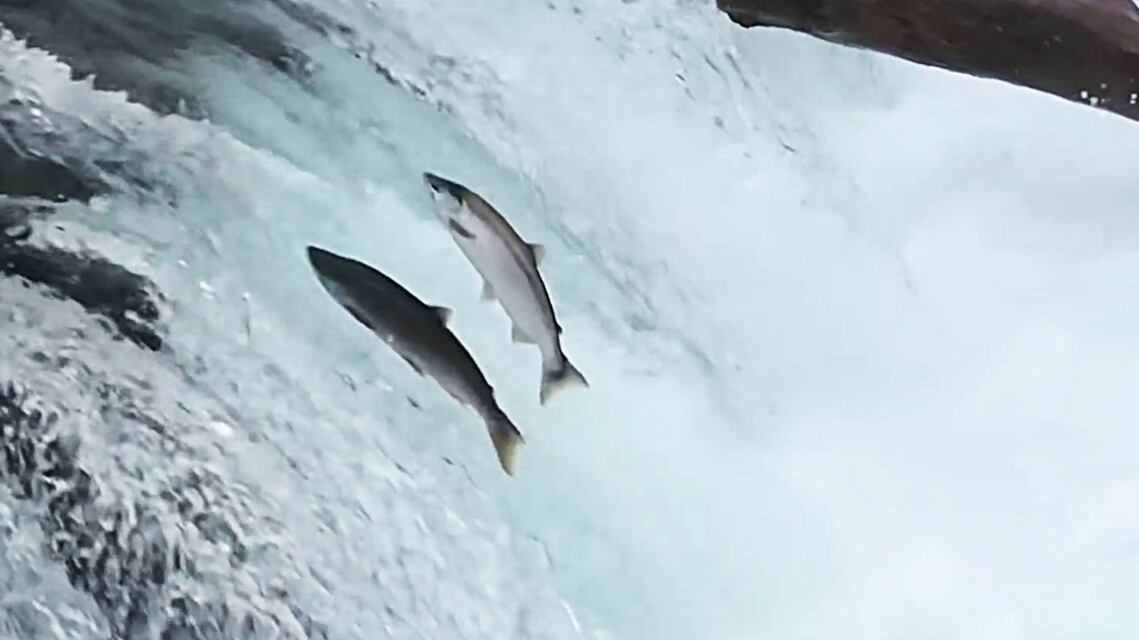With the recent changes in the House of Commons, advocacy groups in BC were pushing for a fisheries minister from this province, due to the reportedly critical point we are at with BC salmon stocks.
Aaron Hill is the executive director of the Watershed Watch Society in BC. He says that currently, BC is losing a lot of its potential salmon stock to Alaskan Fisheries, who have less stringent fisheries laws than we do here.
“So essentially all the all the fish that swim out of our BC rivers go out into the open Pacific Ocean in the Gulf of Alaska, and they spend a year or 2 or 3 out there, and then they make their way down the coast of Alaska, back home to their B.C. rivers to spawn.
And there’s a bunch of fisheries in Alaska that are primarily there to nab those BC fish that are migrating back home to B.C. and they’re catching a lot of our fish. They’re catching a growing share of the total catch, as we’ve ramped down some of our fisheries in BC to conserve our diminished stocks. And so in a lot of years, Alaskans are now catching more BC fish than BC fishermen are. And we need them to scale that back so we can get their help to rebuild these stocks so we can all share the wealth.”
Hill says these topics are supposed to be addressed through the Pacific Salmon Treaty between Canada and the US, which governs how both countries manage each other’s fish populations and share information. But that the current treaty isn’t dealing with the issue.
“The Alaskans, that they’re overfishing some of our stocks and they are, they’re not sharing the necessary information. They’re not taking genetic samples from the catch to tell us what rivers these fish are actually from… When they have to throw back species like Chinook and Steelhead, they’re actually not reporting the numbers. And they’re not throwing them back alive like we’re required to do here in BC. So, there’s just a huge array of problems with the way they’re managing our fish that need to be tackled by the treaty.”
Hill says this is why we require strong leadership from Fisheries Oceans Canada, as well as the Fisheries Minister, to get the best deal for Canada in the Treaty, of which negotiations are underway. The chosen fisheries minister didn’t end up being from BC; Joanne Thompson was elected in St. John’s east, in Newfoundland. Although she’s yet to publicly comment on the issues of Alaskan Interception Fisheries, in the latest question period in the House of Commons, she did state the importance of the role to her;
“This government continues to understand the cultural and the economic importance of the fisheries. And I can tell you that I am very humbled and proud to be responsible for this file. And I will also assure the people of Canada, and certainly my colleague across the aisle, that the fisheries remain an important ministry in the government. And I will do all that I can to ensure that harvesters, industry and communities are protected.”
Hill says his hope is that Thompson will be paying attention to BC waters, as we have until 2028 to lock down a strong deal for BC. He says that currently, easily a third of the salmon population has been decimated by these interceptions in recent years.

“And we’re just asking them to, to show the same level of care and attention to, to our fish and, you know, we’re just talking about a couple fisheries here in Alaska that are the really bad culprits. And those, they could just move those fishermen into inside waters. Where they’re focusing on abundant salmon runs that are swimming back to Alaskan waters.”
According to the Pacific Salmon Commission, in March, 1985, the United States and Canada agreed to cooperate in the management, research and enhancement of Pacific salmon stocks of mutual concern. They did so by ratifying the Pacific Salmon Treaty. Since that time, the Parties have negotiated and implemented new fishing regimes on agreed schedules. In 2009, a new agreement for the conservation and harvest sharing of salmon outside the Fraser and Yukon systems went into effect for 10 years. On May 3, 2019, the Parties implemented a new 10-year agreement for these fisheries that is now in force through 2028. The Fraser River chapter was renewed effective through 2028.
